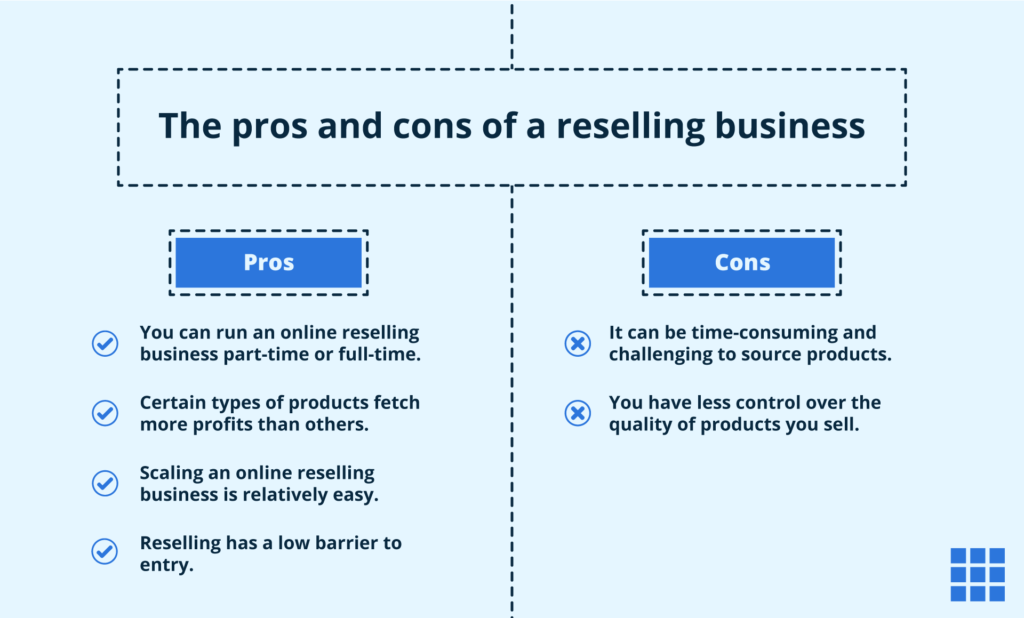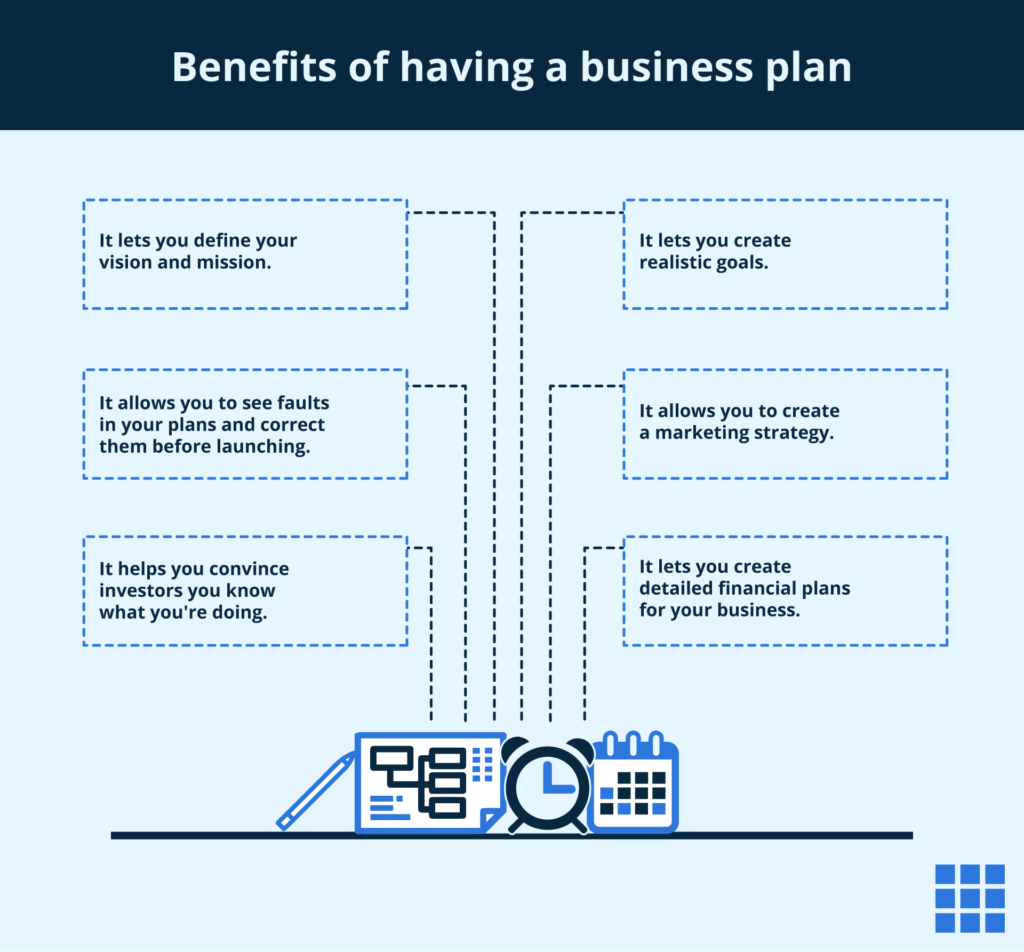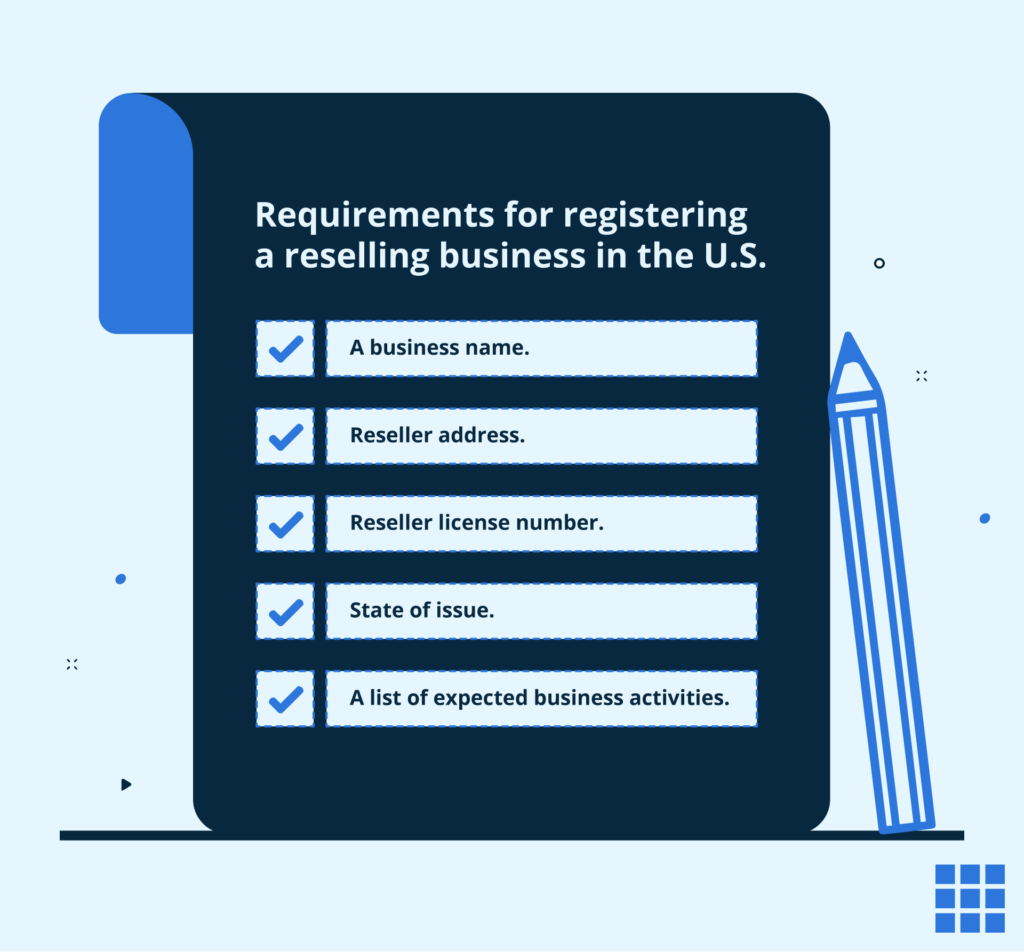Key Highlights
- Learn how to become a reseller and build a profitable reselling business with low startup costs.
- Discover 3 resale business models, dropshipping, wholesale and vintage boutique to grow your online business.
- Find out how to set up an online store, manage inventory and attract customers through competitive prices.
- Explore proven strategies like paid advertising, customer loyalty programs and brand identity to scale your reselling business.
- Understand the legal side of reselling, including business license, resale permit and sales tax compliance.
The internet has become an expansive ether space, where its vast reach has transformed the reselling landscape. This makes it easier than ever to connect buyers and sellers across the globe. The online market is full of opportunities waiting to be explored. People are flipping vintage clothes for a lot of money on eBay. Rare Pokémon cards are causing bidding battles on Etsy. In 2025, reselling is one of the best ways to make money.
Whether you are looking for side hustle options or trying to leave your 9-to-5 job, tapping into the reselling market seems to be a promising prospect. With the right effort, planning and approach, your next big sale could be just a click away
This blog post will guide you on how to become a reseller and create a successful business. First, let’s start by looking at the basics of online reselling.
Understanding the basics of the reselling business – Pros and cons
Reselling means buying goods at a low price and selling them for more money as part of a resale business. You can buy items from various places. These include manufacturers who make the products, wholesalers who sell in bulk for less or even people who want to sell their things at estate sales. After you get these items, you sell them at a higher price.
Let’s examine the good and bad sides of this process.
Pros and cons

Pros:
One of the main benefits of reselling is its flexibility. You can do it as a side hustle or make it your full-time job. Some products, like limited-edition sneakers or collectibles, can attract customers who will earn you a lot of money. Good customer service is key to growing your business. Online tools and platforms can help you reach more people. The best part is you can start your reselling journey on the right foot. You don’t need a lot of money to begin.
Cons:
Reselling has benefits, but it also comes with challenges. Finding the right products can take time and be frustrating. This problem gets worse when the demand in the market changes. If you get your items from other sellers, you have less control over quality. This may cause complaints or returns if customers are not happy with what they receive.
Business opportunities for online resellers
Recent studies show that the global second-hand product market is expected to grow from $424.1 billion in 2024 to $478.99 billion in 2025. The projected compound annual growth rate can be attributed to the rising availability of eCommerce platforms and increasing consumer awareness of sustainability.
There is no dearth of business opportunities when it comes to selling online. You can use popular websites like eBay, Amazon or Poshmark, where millions of people shop daily to increase your online sales.
Social media sites like Instagram and Facebook are also good for reaching buyers on different platforms. If you want to control your business fully, setting up your online store with platforms like Shopify, Amazon Seller Central or eBay Seller Hub can help you scale faster. These platforms provide built-in marketing tools and customer insights to help resellers succeed.
Three reselling models to build a profitable business
Resellers can choose from several approaches to build a profitable reselling business. Each resale business model has unique costs, risks and profit opportunities.
Here are three popular reseller business models:
- Dropshipping: Sell without inventory by forwarding customer orders to a trustworthy supplier.
- Wholesale Reselling: Buy products at wholesale prices, manage inventory and earn higher profit margins.
- Vintage Boutique: Resell vintage items or jewelry through an online boutique, attracting niche buyers who value rarity and quality.
Let’s look at each reselling model in detail to see how it works, its benefits and potential challenges.
1. Dropshipping
Dropshipping is an easy way to run a business without dealing with inventory. You set up an online store and show products from a trusted supplier. When a customer buys something, you send the order details to the supplier. They take care of the delivery. You then keep the profit margin after they take their share.
It’s a legal and low-cost way to start online reselling in the U.S. This is great for people who want to keep their initial spending low. To begin, choose a product that many people want. Then, find a trustworthy supplier and open your own product store. It’s really that easy!
Also read: Dropshipping for Dummies Explained by Bluehost | What Is It and How Does it Work?
2. Wholesale reselling
Buying products in bulk is a common way to resell. It has both advantages and drawbacks. You can get big discounts from wholesalers or manufacturers when you buy in large amounts. This helps lower the cost of each item. However, this method requires money upfront. You also need enough space to store your products safely and organize things.
The benefit? You can make more money than with dropshipping. This is because you buy products at wholesale prices and fulfill orders yourself through your own order fulfillment process. It gives you better control over pricing. Also, when you manage your own inventory, you can check the product quality directly. This means customers will get what they want. Although bulk buying requires more effort and resources initially, it can bring greater rewards over time.
3. Vintage boutique
Vintage items and jewelry are two timeless categories that promise serious profits for resellers. An item is considered vintage if it’s over 20 but less than 100 years old.
There is a growing fascination with turntables, retro gaming consoles and old film cameras. They are some of the hottest-selling commodities in online reselling as demand for vintage aesthetics and nostalgic experiences continues to rise. For instance, a 1958 Gibson Les Paul Standard guitar sold for over $200,000, while a sealed copy of Super Mario 64 fetched $1.56 million at auction.
The rarer and more pristine the device, the higher the resale value. Similarly, jewelry has an evergreen demand, from pearl necklaces and diamond rings to classic hoop earrings.

People always search for beautiful, high-quality accessories, from elegant pearl necklaces and sparkling diamond rings to timeless hoop earrings. Whether you’re curating vintage electronics or timeless jewelry, sourcing unique and valuable items will help attract a loyal customer base eager to own a piece of the past.
The global jewelry market was valued at an impressive $371 billion in 2024. This shows that it is strong and continues to grow. You can buy new or used pieces and sell them for profit. However, it is smart to buy locally whenever you can. This way, you can check the quality yourself.
You can create an online boutique that sells a special collection of vintage items. If you focus on quality and being real, you can make loyal customers who love the story behind each piece. The vintage boutique business often starts from passion. Opening an online boutique may be great if you feel strongly about vintage items. You should look into market trends and find good suppliers for quality pieces. This way, you can build your brand and draw in customers.
Also read: A Step-by-Step Guide on How To Start an Online Boutique (2023)
How to start a reselling business: 5 easy steps to become a reseller
Starting a reselling business is easier than ever. With the right plan, you can start selling online, attract buyers and turn your passion into a profitable reselling business.
Here are five key steps to becoming a reseller:
- Find your winning niche: Choose profitable niche markets like tech gadgets or sell clothing to meet unique customer preferences.
- Pick the perfect reselling model: Select a resale business model that makes it easy to sale online and grow steadily.
- Craft a solid business plan: Define goals, account for marketing costs and use strategies like paid advertising to scale.
- Source high-quality products: Work with trustworthy suppliers, manage inventory and focus on items that build customer loyalty.
- Make it official & market your brand: Register your business and obtain a business license, handle sales tax and promote through an online store and social platforms.
Let’s dive into each step in detail to understand how it works and how it helps build a profitable reselling business.
1. Find your winning niche
First, pick a market segment. This means choosing a group of people who share interests. For example, you might choose sports fans. Next, narrow it down even further to specific audiences within that group. You could focus on sports memorabilia collectors. You can go even deeper and target NBA memorabilia collectors. The more specific you are, the better you can understand and satisfy the unique needs of your niche audience.
When you choose a niche, you are not only selling products. You are really helping to solve certain problems for a certain kind of person. To better understand your niche, ask yourself:
- Who should use this product?
- Can I explain clearly why customers need it?
- Are they willing to pay for it?
- How big is the market for this?
- Are there many competitors with similar products?
- Do I know a lot about or feel excited about this niche?
Once you have a niche you like, it’s time to try it out. Get a few products and show them to potential customers. Ask them what they think. Pay attention to their feedback and change your products or how you present them based on what you hear. This practical method will help you improve your niche and prepare your reselling business for success.
2. Pick the perfect reselling model
Next, start with choosing the right resale business model. You need to select one that fits your products and helps them stand out to the right people. Think about your target audience and your market niche. Do your customers like to shop on eCommerce sites? Or do they enjoy the feeling of visiting a store? Whether you create a stylish online shop or a warm storefront, make sure it matches your business goals and your customers’ wants. Asking these questions will guide you in picking the best reselling model.
A good reselling model can make your work easier and increase your profits. The main point is to choose a setup where your products shine. It should also help your audience find what you are selling quickly, so they can fall in love with it.
3. Craft a solid business plan

Having a strong business plan is very important when you want to be a reseller. It helps you manage everyday tasks and work towards long-term success. A business plan shows your goals, target market, pricing choices and marketing methods. It also includes money plans and ideas for growth. This plan keeps you focused and draws in possible investors or partners who want to help. Since the market changes constantly, updating your plan often helps you stay in front of trends and competitors. This way, you can make sure your profits last.
4. Source high-quality products
Quality is not just something to mark off a list when you pick products for your reselling business. It is important for your brand. You should work with trusted suppliers and manufacturers who provide high-quality items.
It is very important not to miss the quality checks. You need to create a process that makes sure each product meets your standards. High-quality products help build trust, improve your reputation and make people come back for more. In a busy market, the quality of what you sell will make you different and change one-time buyers into loyal fans.
5. Make it official & market your brand
With your business plan and great products ready, it is time to move forward. Now, you should register your business and get the licenses you need.

Starting a reselling business in the U.S. comes with a few essential legal steps to keep things smooth and compliant. You’ll need to register a business name, provide a reseller address and obtain a reseller license number from your state. This license allows you to buy goods tax-free and collect sales tax when reselling. Additionally, you must specify the state of issue and outline your expected business activities. With these steps covered, you’re all set to build a legitimate and profitable reselling venture!
Next, create a strong online presence. Have a professional website and active social media pages. This is where your brand’s personality can stand out. Spend time on branding that shows what makes you different. It should also address what your audience wants and needs. Use it wisely to connect with people, keep them interested and turn curious visitors into loyal customers.
Your next leap: Mastering the art of online reselling business
Learning how to become a reseller goes beyond finding products to sell. To grow a profitable reselling business, you must focus on marketing, branding, customer relationships and data-driven decisions.
Here are five proven ways to master online reselling:
- Optimize your marketing strategy holistically
- Perfect your online storefront
- Build a strong brand identity
- Master customer engagement & retention
- Use data analytics to scale
Now let’s see how to become a reseller successfully by applying these five strategies in detail.
1. Optimize your marketing strategy holistically
If you want to be a reseller and stand out in a busy market, smart marketing is the way to go. Use content marketing and social media ads to show off your products. Create a brand story that gets people’s attention. If you need help, Bluehost offers complete digital marketing services. This includes managing SEO and PPC ads. Our solutions will help your site rank well on search engines and handle pay-per-click ads to make sure your products find the right audience.
Don’t forget about the importance of SEO. A website that is optimized well can attract more visitors to your store. These visitors are already looking for what you offer. These strategies act like a strong marketing tool. They help your business grow and create long-lasting relationships with customers.
Also read: WordPress SEO: Everything you Need to Know! Optimization Tips + Best Practices + Plugins
2. Perfecting your online storefront
You need a simple and mobile-friendly website to make your reselling business successful. This will help customers shop easily, whether using their phones or computers. Bluehost’s WooCommerce hosting gives you great tools to set up and personalize your online store. This will help create a smooth shopping experience. You can also make checkout easy by allowing several payment options. Accept credit cards and digital wallets, all with secure online payment features from Bluehost.
You can improve your online store by using high-quality images and attractive product descriptions. These will encourage customers to click that “buy” button. With WooCommerce hosting solutions, you can turn your reselling idea into a smooth and good-looking shopping experience.
3. Building a strong brand identity
Your brand is not just a name; it reflects your business’s personality. Start by creating a logo that people will remember. Ensure your brand looks similar everywhere, using colors, fonts and styles that show who you are and what you sell. Branding is not only about looks; you must also keep the same brand tone and voice on all platforms. Creating a brand voice is all about defining how your brand communicates with the world. This way, customers will know what to expect from you. Most importantly, talk to your audience—respond to their comments, answer their questions and show you appreciate them. Building trust and loyalty can turn first-time buyers into loyal fans of your reselling business.
4. Mastering customer engagement & retention
Good customer service is key to a successful reselling business. You should put in the effort to make your customers feel appreciated. Fast replies, easy returns and a friendly approach can really change the experience.
- You can use loyalty programs and provide special discounts for repeat buyers. This gives them reasons to pick your brand instead of your competitors.
- Encourage your customers to write reviews and testimonials. This not only boosts your credibility but also helps new shoppers develop trust in your brand.
5. Using data analytics to scale
Data is key to the long-term success of your reselling business. You should use Google Analytics to monitor your sales and learn about customer behavior. This data is very important for making wise choices. Find out which products sell the best. Then, adjust your inventory to keep your bestsellers available while removing items that sell slowly.
You should try different pricing strategies and promotions to find the best for your audience. Making small changes can open up new chances, increase sales and help your business grow correctly.
Also read: 5 Ways to Use Google Analytics Data to Optimize Your WordPress Website
Final thoughts
Stepping into reselling is not just about selling wholesale products. It’s about creating your own eCommerce business that shows off your passion and business skills. If you want to be a reseller, you have many choices. With a strong business plan, good products and smart marketing, you can make your reselling journey a successful one.
Learning how to become a reseller is just the first step. To succeed in the long run, you must adapt to the changing market trends. It’s important to listen to your customers and improve your methods. By optimizing your storefront, connecting with loyal buyers and using data, your reselling business can survive and thrive.
With Bluehost’s wide range of services, you can quickly start a WooCommerce shop from the ground up. You can improve your online presence, connect with your audience and attract the right visitors to your store. While you modify your storefront, you can engage with loyal customers and use data to your advantage.
So, if you want to make extra money or create a real brand, now is a great time to jump in and stand out in the reselling market.
FAQs
To start reselling, choose a niche, pick a business model (dropshipping, wholesale or vintage), source high-quality products and set up an online store on eBay, Amazon or Shopify. Market your products using SEO and social media to attract buyers and generate sales.
Yes, a reselling business can be profitable. Success depends on choosing profitable niche markets, using the right resale business model, setting competitive prices and managing cash flow. Many entrepreneurs grow part-time hustles into a profitable reselling business or full-time online business.
The investment depends on the model. Dropshipping requires minimal costs (website, marketing), while wholesale reselling needs a larger budget for bulk inventory. On average, expect $100–$500 for dropshipping and $1,000+ for wholesale reselling, depending on your supplier and business setup.
Resellers source items from wholesalers, thrift stores, estate sales, yard sales, garage sales and liquidation suppliers. Many build a reseller business model around finding valuable items at low costs and reselling online. Trustworthy suppliers help maintain quality, customer satisfaction and higher profit margins.
Yes, resellers must follow tax laws. Most need a business license or resale permit to collect sales tax properly. Whether selling through online marketplaces or your own eCommerce business, you must pay sales tax when required. Compliance ensures trust, legality and smooth operations.
Yes, reselling is legal if you purchase items, own them fully and follow the rules. A valid business license and resale permit are often required. As long as you pay sales tax, a reselling business remains fully legal and profitable.
To become a reseller, start with research, learn profitable reselling business ideas and test small-scale sales on online marketplaces. Build an online store, explore inventory management tools and study market demand. With consistent effort and good customer service, you’ll grow a successful reselling business.
Reselling works by buying products at lower prices, through wholesalers, thrift stores or estate sales and selling them online or offline at competitive prices. A resale business model profits by managing inventory, setting profit margins and attracting customers.



Write A Comment